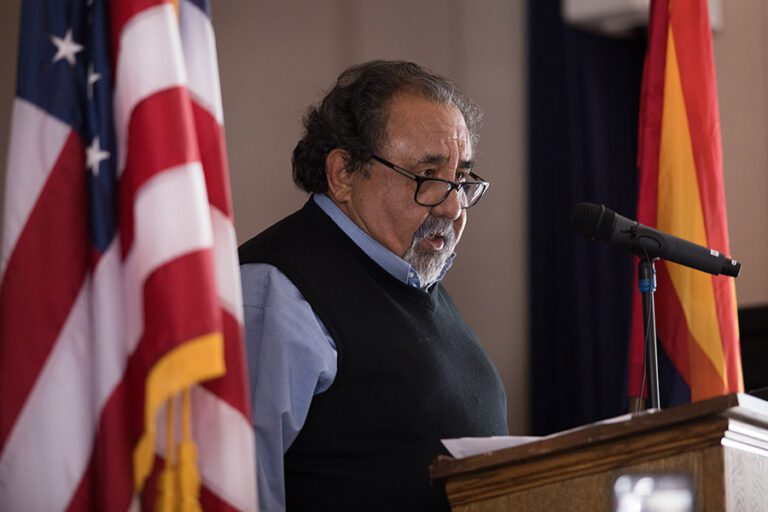Resource Issue: Environmental justice
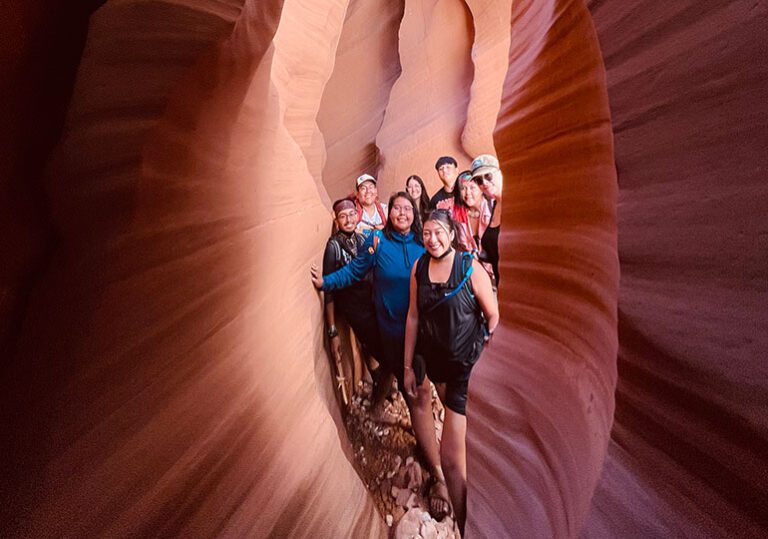
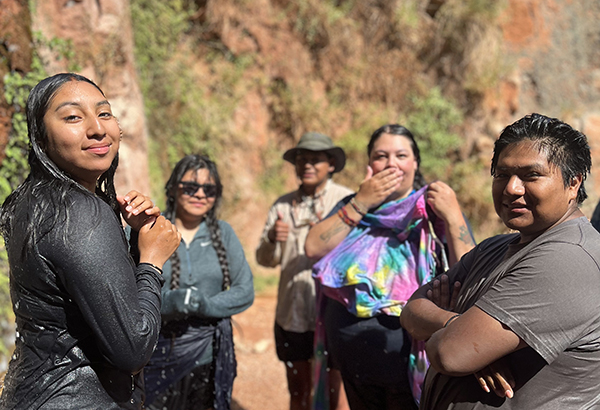
FOR IMMEDIATE RELEASE Flagstaff, AZ — The Grand Canyon Regional Intertribal Intergenerational Stewardship Expedition (RIISE) is accepting applications from young people ages 16-20 who identify as members of one of the associated tribes of the Grand Canyon for its third annual free nine-day Colorado River rafting trip through the Grand Canyon July 15-23, 2024. Hosted by […]
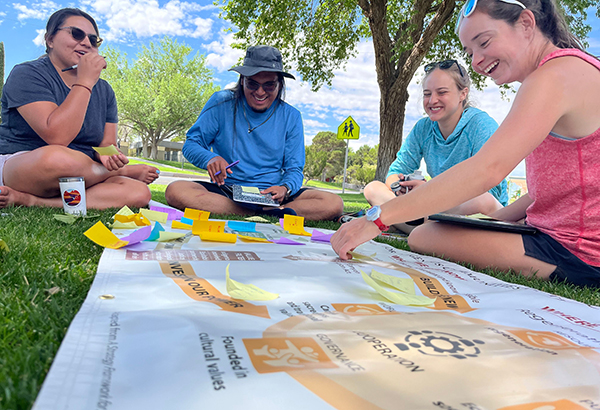
FOR IMMEDIATE RELEASE Flagstaff, AZ — The Grand Canyon Trust is now accepting applications for its 2024 LeaderShift Scholars program. Up to 12 LeaderShift scholars will be selected for a free nine-day immersive outdoor environmental justice advocacy training across the Colorado Plateau, August 10-18, 2024. LeaderShift scholarships include $150 stipends, meals, and transportation, with gear-lending available. […]

On the importance of not being the “only one” in the room. BY CHELSEA GRIFFIN I remember the moment I first felt like I was the only one in the room like me. It was 2003; I was 13 years old, and riding the school bus home in suburban West Linn, Oregon, sitting next to […]

Energy Fuels Resources (USA), Inc. responds to the Utah Department of Environmental Quality’s Division of Air Quality with a plan to address the problem of radioactive materials left uncovered in a waste pit at the White Mesa Mill near Bears Ears National Monument. The White Mesa Mill was barred from accepting radioactive Superfund waste in […]
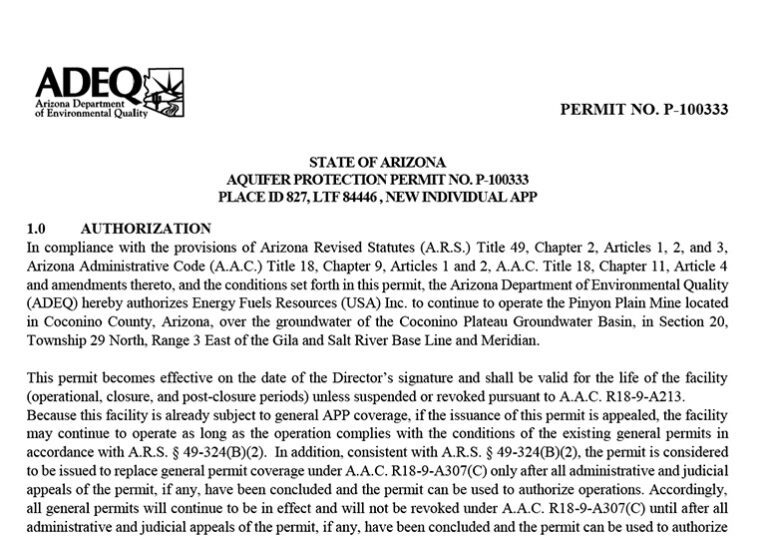
The Arizona Department of Environmental Quality issued an aquifer protection permit for Canyon Mine (renamed Pinyon Plain Mine), a uranium mine that sits fewer than 10 miles from the rim of the Grand Canyon and near a sacred site of great importance to the Havasupai Tribe. Read the permit › Download the PDF ›
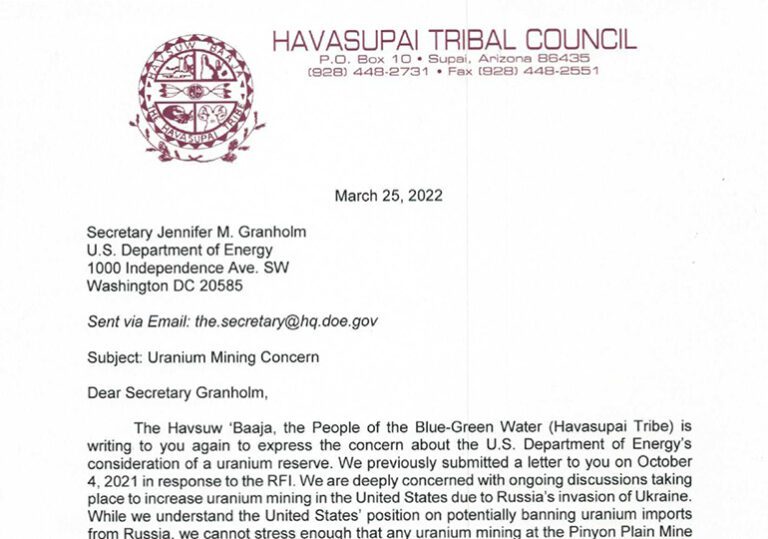
On March 25, 2022, the Havasupai Tribe sent a letter to the U.S. Department of Energy asking that Canyon Mine, now known as Pinyon Plain Mine, be excluded from any federal funding that might become available via a potential uranium reserve because of the threat the mine poses to the tribe’s water and people. The mine is […]

The Environmental Protection Agency (EPA) replied to Energy Fuels Resources (USA), Inc.’s claims about solid waste left exposed to open air at the company’s White Mesa uranium mill, near Bears Ears National Monument. The EPA reaffirmed its decision not to allow the mill to accept Superfund waste. The Clean Air Act requires discarded radioactive wastes at […]

A letter from the Environmental Protection Agency to Energy Fuels Resources (USA), Inc. clarified how discarded radioactive waste materials should be maintained at the company’s White Mesa uranium mill in southeastern Utah. The White Mesa Mill was barred from accepting radioactive Superfund waste in December 2021 after the EPA found it was violating the Clean Air Act. Read […]

In an August 24, 2021 resolution, the Ute Mountain Ute Tribal Council states that the operations of the White Mesa Mill, which processes radioactive waste materials, have had severe health impacts on the residents of White Mesa and should cease entirely. The council also opposes the creation of a strategic uranium reserve. Read the resolution › […]

The Havasupai Tribe submitted comments to the Arizona Department of Environmental Quality regarding the proposed individual aquifer protection permit for Canyon Mine (renamed Pinyon Plain Mine). The negative impacts of uranium mining have disproportionately affected Indigenous populations in northern Arizona, and the tribe requests, again, the immediate closure of Pinyon Plain Mine. Read the full comment […]
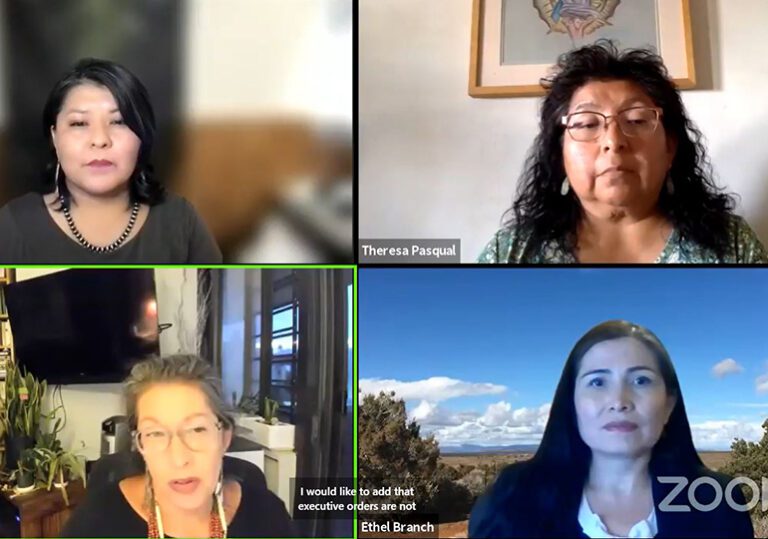
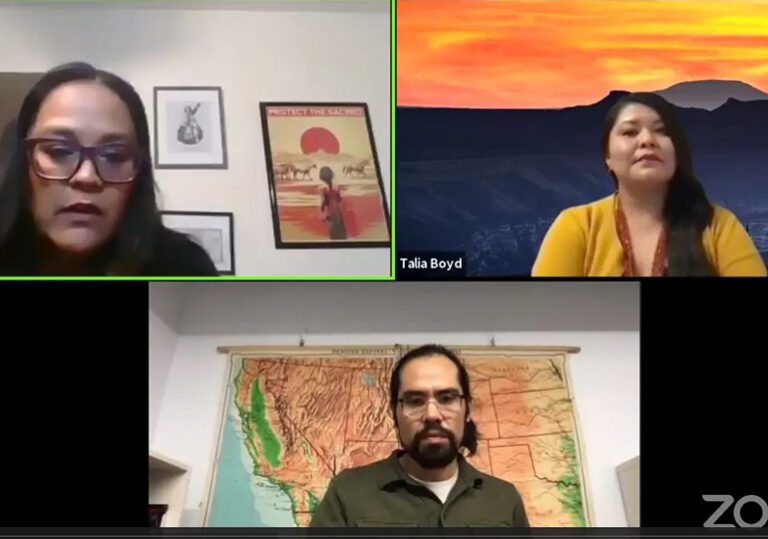
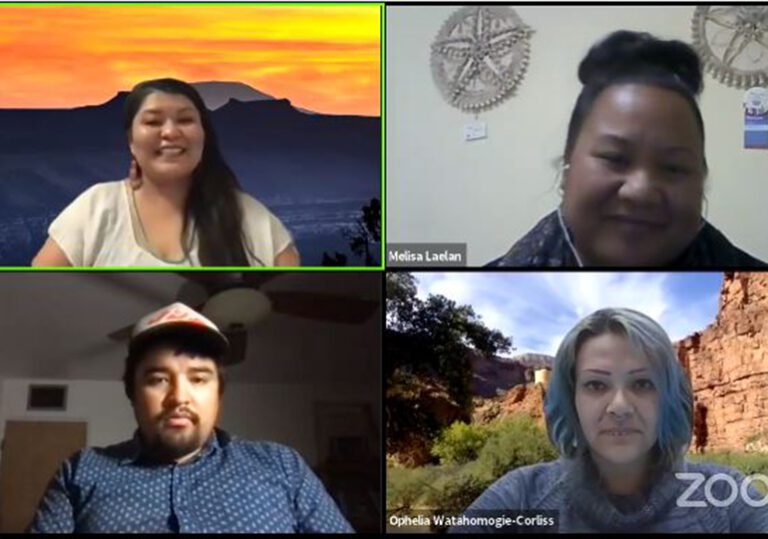
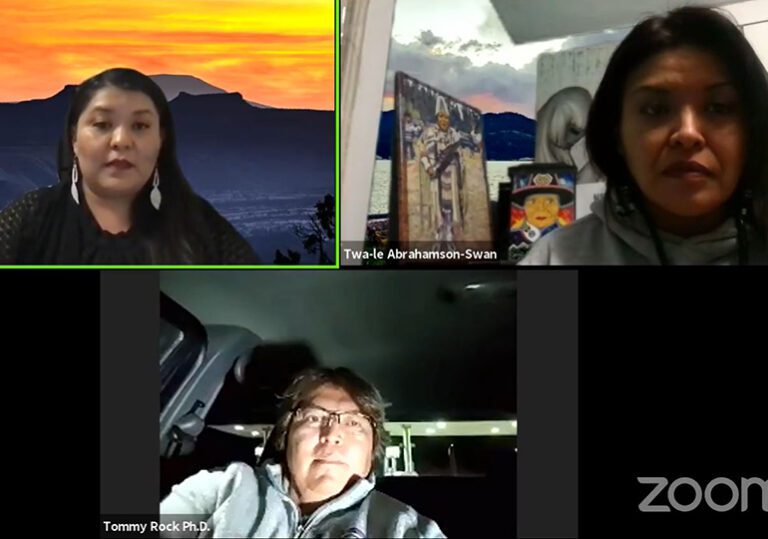
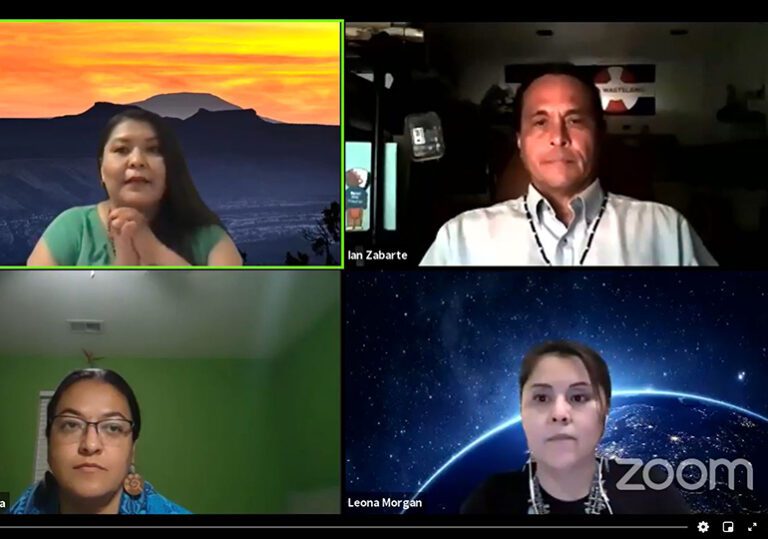
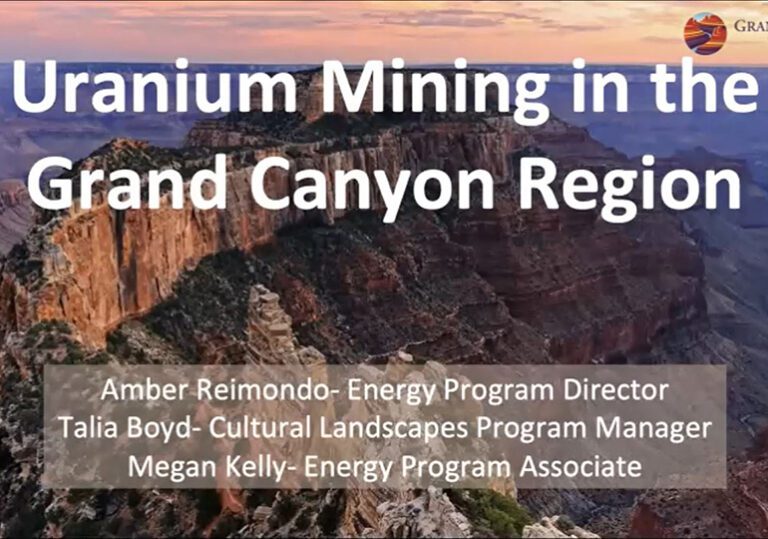
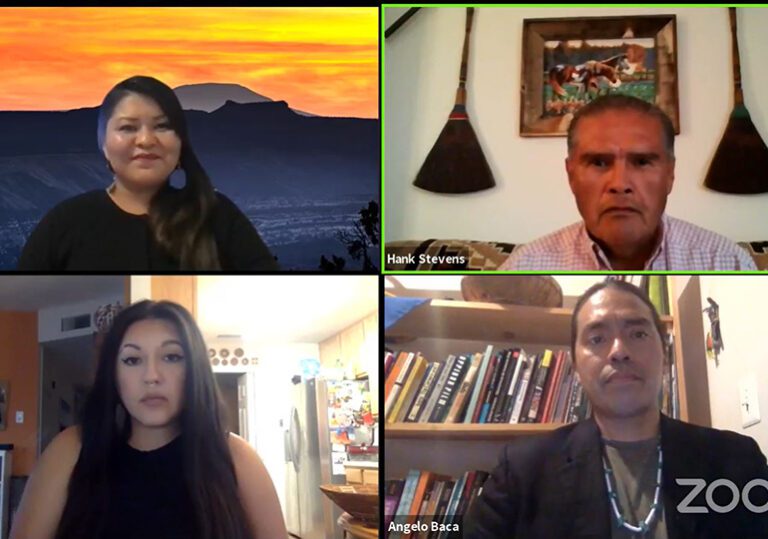


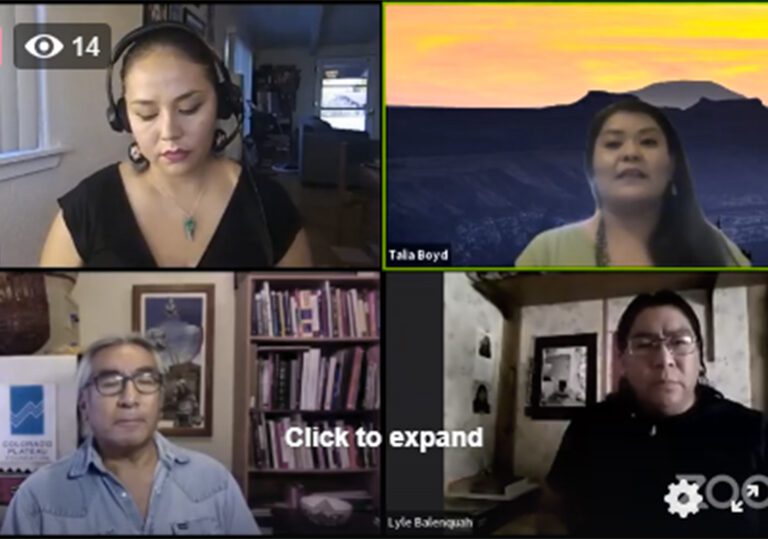
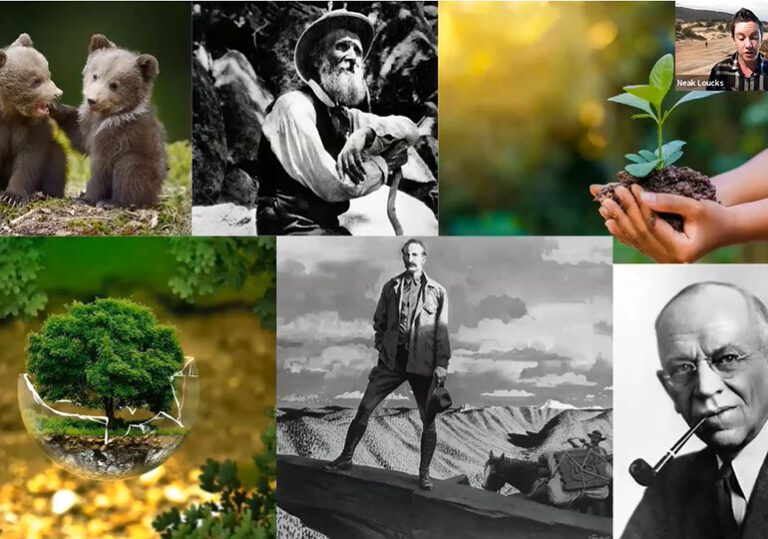
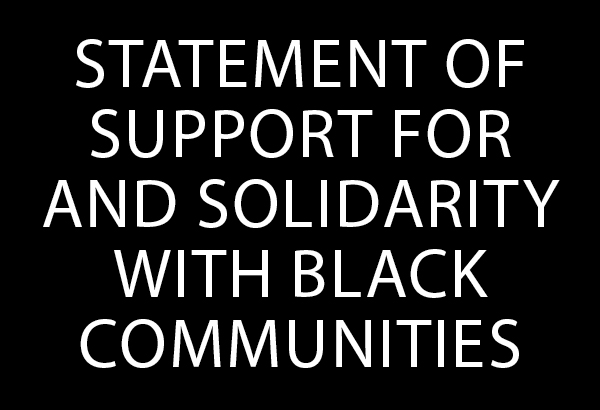
FLAGSTAFF, AZ — We stand in support of and in solidarity with Black communities, today and every day. As George Floyd’s, Breonna Taylor’s, Dion Johnson’s, and Ahmaud Arbery’s names have been added to a growing list of people killed because of the color of their skin, we know change isn’t optional, it is necessary. Across the […]

